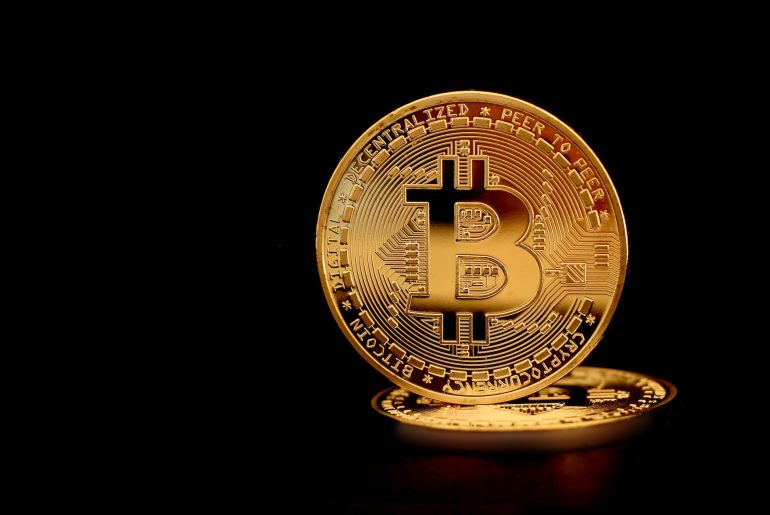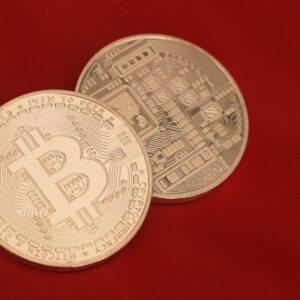This article may contain references to products or services from one or more of our advertisers or partners. We may receive compensation when you click on links to those products or services. Nonetheless, our opinions are our own.

Updated by Albert Fang
Blockchain technology has the potential to drastically alter many aspects of our society, thus it is important to first define what makes it unique. In particular, its superior encryption and decentralized, unchangeable ledger provide a powerful new attribute to global computer networks: trust. This may include faith in the possession of a digital money or item, in its provenance, or in the authenticity of a transaction. This even includes having faith in blockchain’s impartial, decentralized business plan and in the transparency of the underlying code and information. Here are six ways in which the blockchain might drastically alter the world:
- Supply Chains That Can Be “Viewed”
- Managing Resources In A Decentralized And Responsible Way
- How To Get A Trillion Dollars – Alternative, Long-Term Funding Sources
- Providing Incentives For Resource-Efficient Economies
- Innovating Carbon And Other Environmental Markets
- New Methods For Checking In On Environmental Progress
- To Sum Up
- Recommended Reads
Supply Chains That Can Be “Viewed”
A blockchain may prepare financial statements throughout the whole supply chain, providing an irreversible record of authenticity. This has the potential to allow for complete and unprecedented visibility and tracking of goods from production to retail. Just like cryptocurrency payments on Bitcoin Loophole. This might change the way suppliers, buyers, and regulators think about supply networks, and it could also lead to a fresh surge of customer desire for environmentally friendly supply chains.
Managing Resources In A Decentralized And Responsible Way
Blockchain technology can support the widespread adoption of green, smart, and autonomous water and electric power infrastructure. The availability of systems that aggregate dispersed information on these assets. This represents a game-changer since it allows for more informed decision-making by system administrators and end users alike. Platforms powered by the blockchain may solve this problem by facilitating better, more autonomous judgment regarding the allocation and control of memory space.
How To Get A Trillion Dollars – Alternative, Long-Term Funding Sources
Blockchain-enabled financing systems have the ability to radically alter the availability of funds and attract a hitherto untapped group of financiers for initiatives that aim to solve ecological consequences, such as sustainable infrastructural development, blended financing, or philanthropic contributions for underdeveloped countries. In a broader sense, blockchain has the ability to facilitate a change in emphasis from corporate profits to stakeholder benefit and from the conventional accounting of finance centers to the accountancy of cultural, ecological, and economic centers.
Providing Incentives For Resource-Efficient Economies
The distributed ledger technology known as blockchain has the potential to radically alter the ways in which components and environmental assets are appreciated, utilized, and marketed by providing incentives for people and businesses to derive monetary benefit from activities that are currently considered economically worthless. A truly circular economy may be possible as a result of this shift in mindset. Such a social venture is Plastic Bank, which offers cryptocurrency tokens in return for marine recycled content.
Innovating Carbon And Other Environmental Markets
To improve upon current carbon (or even other material) marketplace systems and to open up new possibilities for carbon credit trades, public blockchains may issue transferable crypto coins. The hope is that by using smart contracts, the Chinese carbon market may become more open, auditable, and trustworthy. It is possible that in the years ahead, blockchain technology may serve as the backbone of a worldwide marketplace for exchanging carbon credits among people, families, and businesses.
New Methods For Checking In On Environmental Progress
The use of blockchain technology has the capability to revolutionize sustainable development and certification by assisting businesses in managing, demonstrating, and improving their results and facilitating more educated purchasing and investment choices by customers and investors alike. Smart contracts might enable the automated gathering and administration of data to provide access to reliable information in a timely manner and reduce the potential for fraud. Since the efficiency of carbon pricing systems depends on the availability of open and reliable data on Greenhouse gas, better GHG reporting using the blockchain may boost the efficacy of carbon taxes.
To Sum Up
If blockchain technology lives up to the hype and is applied to the correct challenges, it might facilitate a move toward decentralized solutions that are greener, more asset, and more empowering for communities. This is especially crucial in the environmental field, which is plagued by the disaster of the commons and difficulties in quantifying intangible worth.

Reviewed and edited by Albert Fang.
See a typo or want to suggest an edit/revision to the content? Use the contact us form to provide feedback.
At FangWallet, we value editorial integrity and open collaboration in curating quality content for readers to enjoy. Much appreciated for the assist.
Did you like our article and find it insightful? We encourage sharing the article link with family and friends to benefit as well - better yet, sharing on social media. Thank you for the support! 🍉
Article Title: 6 Possibilities That Blockchain Technology May Revolutionize Environmental Policy
https://fangwallet.com/2022/12/13/6-possibilities-that-blockchain-technology-may-revolutionize-environmental-policy/The FangWallet Promise
FangWallet is an editorially independent resource - founded on breaking down challenging financial concepts for anyone to understand since 2014. While we adhere to editorial integrity, note that this post may contain references to products from our partners.
The FangWallet promise is always to have your best interest in mind and be transparent and honest about the financial picture.
Become an Insider

Subscribe to get a free daily budget planner printable to help get your money on track!
Make passive money the right way. No spam.
Editorial Disclaimer: The editorial content on this page is not provided by any of the companies mentioned. The opinions expressed here are the author's alone.
The content of this website is for informational purposes only and does not represent investment advice, or an offer or solicitation to buy or sell any security, investment, or product. Investors are encouraged to do their own due diligence, and, if necessary, consult professional advising before making any investment decisions. Investing involves a high degree of risk, and financial losses may occur including the potential loss of principal.
Source Citation References:
+ Inspo











































